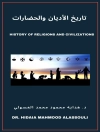In ‘The Everlasting Man, ‘ G. K. Chesterton crafts a profound theological and philosophical exploration of the essence of humanity, framing his arguments through a lens of rich literary style that blends wit, irony, and deep insight. This seminal work, published in 1925, serves as both an apologetic treatise and a cultural critique, juxtaposing the individual human experience against the vast tapestry of history and religion. Chesterton’s narrative weaves together elements of myth, Christianity, and anthropology, ultimately contending that the unique nature of man finds its fullest expression in the person of Christ, thus affirming the continuity of faith in a modern world skeptical of spiritual truths. Chesterton, an influential British writer known for his adeptness in satire and his defense of Christianity, infuses his work with personal conviction and scholarly rigor. His experiences with the early 20th-century secular movements, alongside his passionate engagement with the Catholic faith, motivated him to articulate a compelling case for the enduring relevance of religious belief. His rich literary background and philosophical inquiries into human nature serve as the bedrock for his defense of Christianity in an era ripe for skepticism. I highly recommend ‘The Everlasting Man’ to readers seeking an intellectually stimulating yet accessible defense of faith. Chesterton’s masterful prose and engaging discourse not only illuminate the complexities of humanity but also invite contemplation on belief’s fundamental role in society. This book is essential for anyone exploring the intersection of faith, philosophy, and history.
A propos de l’auteur
G. K. Chesterton (1874-1936) was a prolific English writer, poet, philosopher, dramatist, journalist, orator, and literary and art critic. Renowned for his wit, Christian apologetics, and skillful paradoxes, Chesterton was a towering figure of early 20th-century literature, engaging with themes that spanned from the mundane to the metaphysical. His vast body of work encompasses several genres, including the detective fiction series featuring the priest-detective Father Brown and numerous theological and philosophical writings. Among his notable books, ‘The Everlasting Man’ (1925) stands as an eloquent defense of Christianity and a strategic counter to H. G. Wells’ Outline of History. In this book, Chesterton argues for the unique significance of human culture and the incarnation of Jesus Christ as central truths in human history. His distinctive literary style, marked by a narrative richness, often incorporated allegory and humor to profound effect, allowing him to reach both popular and scholarly audiences. Chesterton’s influence on both Christian apologetics and English literature has been substantial, with his works continuing to inspire readers and thinkers around the globe.




